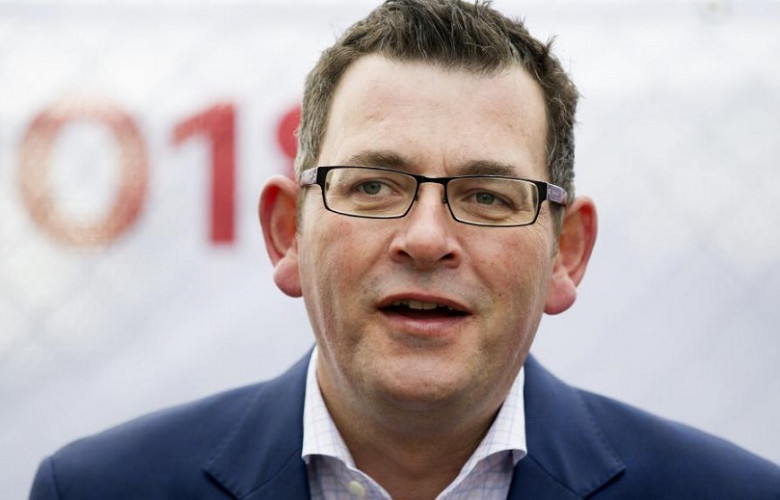Victorian government steps in to help first-home buyers
Contact
Victorian government steps in to help first-home buyers
The Andrews Labor government has introduced a raft of measures to help first-home buyers, including scaling back stamp duty, and eliminating it for buyers of properties worth less than $600,000, introducing equity sharing, and adding incentives for buyers in regional Victoria.
The Andrews Labor government has introduced a raft of measures aimed at helping first-home buyers get a toehold in the rapidly rising Victorian property market.
The Victorian government will abolish stamp duty for first-home buyers purchasing properties worth less than $600,000, and will offer stamp duty concessions for first-home buyers purchasing property valued between $600,000 and $750,000.
Both the exemption and the concession will apply to new and established homes.
The government will also remove stamp duty concessions for off-the-plan investment properties. Stamp duty concessions for off-the-plan properties will be available for those who intend to live in the property, or who are first-home buyers.
At the same time, the government is introducing a tax on properties left empty in inner and middle Melbourne suburbs. The Vacant Residential Property Tax will be levied at 1 per cent, multiplied by the capital improved value of the taxable property.
Premier Daniel Andrews said, “These changes will help thousands of Victorians make the Great Australian Dream [of home ownership] a reality."
The initiatives will mean families and future generations "will be able to afford somewhere to live,” said Victorian state treasurer Tim Pallas.
The Victorian government has also introduced an equity-sharing scheme to help first-home buyers fund a deposit and mortgage. The new $50 million pilot scheme, HomesVic, will be introduced in January 2018, and will help Victorians co-purchase one of up to 400 homes. Homes Vic will take an equity share of up to 25 per cent in the properties.
This program will be available to households where couples earn up to $95,000, and singles earn up to $75,000.
The Labor government will also contribute $5 million to a national, community sector, shared-equity scheme, Buy Assist, which will help deliver another 100 shared-equity homes.
The Victorian state government will also allocate at least 10 per cent of all government-led urban renewal projects to first-home buyers, for example the 56-hectare Arden development.
Premier Daniel Andrews said, “As rent keeps climbing, it’s getting harder and harder for Victorians to save for a deposit. By co-purchasing these properties, we’re helping them to get out of the rental market and into their own home sooner.”
Property in regional Victoria was given a boost last Friday when the state government announced it will double the first-homeowners grant in regional Victoria. First homebuyers building new homes in regional Victoria will be entitled to $20,000 as of 1 July this year, up from $10,000 for new homes valued up to $750,000.
The Real Estate Institute of Victoria welcomed the stamp duty reductions and the increase in the first-home owners grant in regional Victoria.
REIV President Joseph Walton told SCHWARTZWILLIAMS, "The REIV has long sought greater support for first homebuyers, and welcomes the government’s new stamp duty reductions for these buyers.
“Strong capital growth in Victoria’s median house price, particularly in metropolitan Melbourne, has made access to the housing market more difficult for first homebuyers," said Walton.
“These new initiatives will enable many Victorians to move from the rental market into home ownership," he said.
“Given Australia’s housing market is the largest store of the nation’s wealth, the REIV considers it crucial that the Government continues to support first homebuyers in entering the market,” concluded Walton.
The Real Estate Institute of New South Wales said the Victorian government's measures to help first-home buyers should "propel" the New South Government to introduce similar measures to improve affordability for first-home buyers.
“Victoria has acted,” said John Cunningham, president of the REINSW. “It is time for NSW to step up and take a stand."
"We will lose our best and brightest if we do not match or better what Victoria has pledged to introduce," said Cunningham.
Cunningham said the measures aimed at enticing first-home buyers to regional Victoria should be reintroduced in NSW.
“NSW wound up its regional homebuyers schemes in March 2015. This must also be put back on the agenda,” he said.
The Real Estate Institute of South Australia also said the South Australian government should introduce measures to help first-home buyers.
REISA CEO, Greg Troughton called on the South Australian State Government to take note and follow suit.
"It is time now for South Australia to take this problem seriously”, said Troughton.
Troughton said South Australia already suffers "brain drain" to the eastern states, and the Victorian measures could make the situation even worse.
Troughton's sentiments were echoed by REISA president, Alex Ouwens.
"Property is South Australia’s largest private sector employer and biggest industry, accounting for 11% of the state’s economic activity," Ouwens told SCHWARTZWILLIAMS.
"Property is the largest single industry contributor, paying 57% of state taxes, local government rates, fees and charges," he said.
"South Australia pays the highest stamp duty percentage in the country," explained Ouwens, saying, "the tax system is keeping first-homebuyers out" of the market.
"Without an equalisation strategy of the tax burden, South Australia will not be competitive nor attractive to invest," said Ouwens.
The Housing Industry Association also welcomed the Andrews government's announcements, saying they would improve first-home buyer affordability in Victoria.
“The HIA has consistently highlighted the need for a comprehensive approach to addressing the state’s housing affordability challenge,” said Keith Banks, HIA Victoria’s acting executive director.
"The HIA commends the Victorian Government for a policy suite that addresses a range of areas,” said Banks.
The stamp duty policies will "provide thousands of Victorians with the ability to enter the market faster than previously possible and will provide a boost to Victoria’s residential housing industry,” he said.
See also:
Housing affordability on governments' agenda
Rates on hold, but housing affordability remains 'hotly debated'





